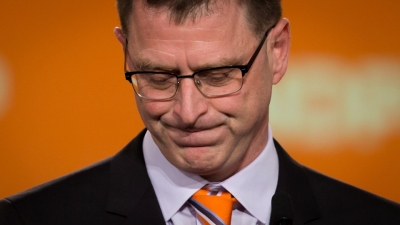
The election has been over now for three weeks, and the media has been full of articles dissecting what happened in an attempt to explain what to many came as a shocking surprise.
It is easy to see what happened, if not why, but generally left unsaid is what probably will not happen with the Liberals getting another four years in government.
A friend of mine made note of that right after the results were in, and I think that it puts the whole event in a more accurate perspective than merely discussing how the election was either won or lost, depending on one’s point of view.
As my friend Marco wrote, for the next four years, there will be:
NO public inquiry into the BC Rail and BC Hydro scandals
NO comprehensive public Environmental-Economic Impact Assessment for major resource development projects (pipelines, mines, fracking, etc.)
NO restoration and repair to our damaged public health, emergency and education systems
NO restoration of curtailed Human Rights, Labour Code and Employment Standards, and Freedom of Information laws
NO serious effort to develop a more sustainable, democratic, local community-based economy and job creation (including co-ops, getting away more from oil dependency, etc.)
NO restoration of a fairer dynamic tax code based on the ability to pay, not on who you know or how well you can blackmail.
NO relief from skyrocketing personal debt, lack of retirement security, lack of access to skills training, declining air and water quality, ever worsening poverty and homelessness and chronic high unemployment
NO electoral or election finance reform or efforts to make government bureaucracy and crown agencies more accountable to the public, including the productive union workers who give them reason to exist.
So, how did this happen? Polling before the election indicated that the public was fed up with the government, and that they would be defeated soundly. It did not happen, and the reason that most did not see it coming as it did could be because the polls were asking the wrong questions and the election planners were running with misleading data.
There is no guarantee, however, that even if the right questions were asked and the data was different the opposition would have been able to unseat the government. It may be that the organization as presently constituted cannot win elections because they are adverse to running the kind of campaign necessary to achieve victory.
The polls are probably telling us what people are thinking, but not so much how they will vote, or more precisely if they will turn their feelings into votes. The fact is that from the middle of their first term onward the public was generally unhappy with the government. The opposition lost three elections in a row that were theirs’ to win because they could not turn that dissatisfaction into votes.
For the last thirty years the province has seen a steady decrease in the percentage of eligible voters actually casting a ballot, with the exception of a minor increase in 2005. The 2013 election had a turnout of just over fifty-two percent of registered voters, but not all eligible voters even bother to register. The turnout of all eligible voters was just over forty-nine percent.
The government won re-election with just under twenty-two percent of the vote of those estimated to be eligible to vote. The message here being that most voters, though unhappy with the government, also do not trust the opposition nor the system, and don’t bother to participate.
The root of current dissatisfaction might lay in the results of the 2001 election where after five years of concentrated negative attacks on the NDP government the current government won a landslide victory. Unfortunately for them their campaign was more hype than reality, and instead of governing with the interests of the province in mind they proceeded to rip up social contracts and sell off public assets. They dropped in the polls.
The reason the opposition has been unable to capitalize on this situation may have roots in their 2000 leadership contest where the populist wing of the party was crushed in this rather unsavory event by party power brokers. They lost the 2001 election which was no surprise, but losing it by the margin that they did was.
They continued in control of the party, managing to lose two elections with Carole James, and lost more credibility with the ham-handed way that they managed the uprising against Carole dating from at least the 2009 convention. Now they have lost an election that was more than theirs’ to win, primarily because a majority of the people who do vote do not trust them, and much of the majority who do not vote, won’t because they do not have a good incentive to go to the polls.
What will happen in 2017, or possibly before, will depend upon whether the government can clean up its act and regain popular support (in the thirty polls taken by Angus Reid between August 2009 and May 2013 the government only led or was tied in three of them), and whether the opposition can clean house and energize the public to see them as a credible alternative.
Jerry West publishes The Record in Gold River, BC.


Monday, 10 June 2013 16:15 posted by marysue
Even if people think voting is a farce, they still need to vote–and bring their brains along with them and USE THEM. If they haven’t a clue whom to vote for, they could at least vote for the less damaging to them and their families, neighbours, friends and relatives and the environment they all have to live in. They need to vote with an eye to those social services that they WILL wind up needing someday, esp. when they retire or fall ill. AND will the government they vote for want to force them to keep on working until they drop?
They should have voted for the government most like the Good Samaritan, instead of General Bullmoose!
Wednesday, 05 June 2013 09:06 posted by Jerry West
Convincing voters that the whole process is anything more than a sham is probably the viable alternative. To do that a party has to stick its neck way out with promises that will be very unpalatable to those that benefit from the current system and who fund the political process and control the main channels of communication. Even then, among those who want change there will be divisions and those opting to vote for no change (or not vote at all) because the change wasn’t exactly what they wanted.
Its going to be a tough uphill struggle to change the system.
Tuesday, 04 June 2013 17:45 posted by Wendy
Totally agree with Rachel’s post. After reading her post the only words that came to mind were: Turkey and Revolt.
Tuesday, 04 June 2013 10:55 posted by Rachel McMillen
2017 results will depend on much more than whether the provincial government can clean up its act, or even whether the opposition can present itself as a viable alternative. 2017 will depend on whether Canadian governments as a whole – federal, provincial and even municipal – can convince voters that the whole electoral process is anything more than a sham and indeed, whether our whole political system is worth voting for. With omnibus bills, no debate, senate scandals et al, taking the time out of your day to cast a vote that will do absolutely nothing no matter what the result is a phenomenal waste of time that leads to nothing other than frustration mixed with a huge dose of cynicism. Better to just let Enbridge and the rest run the country – and the province.